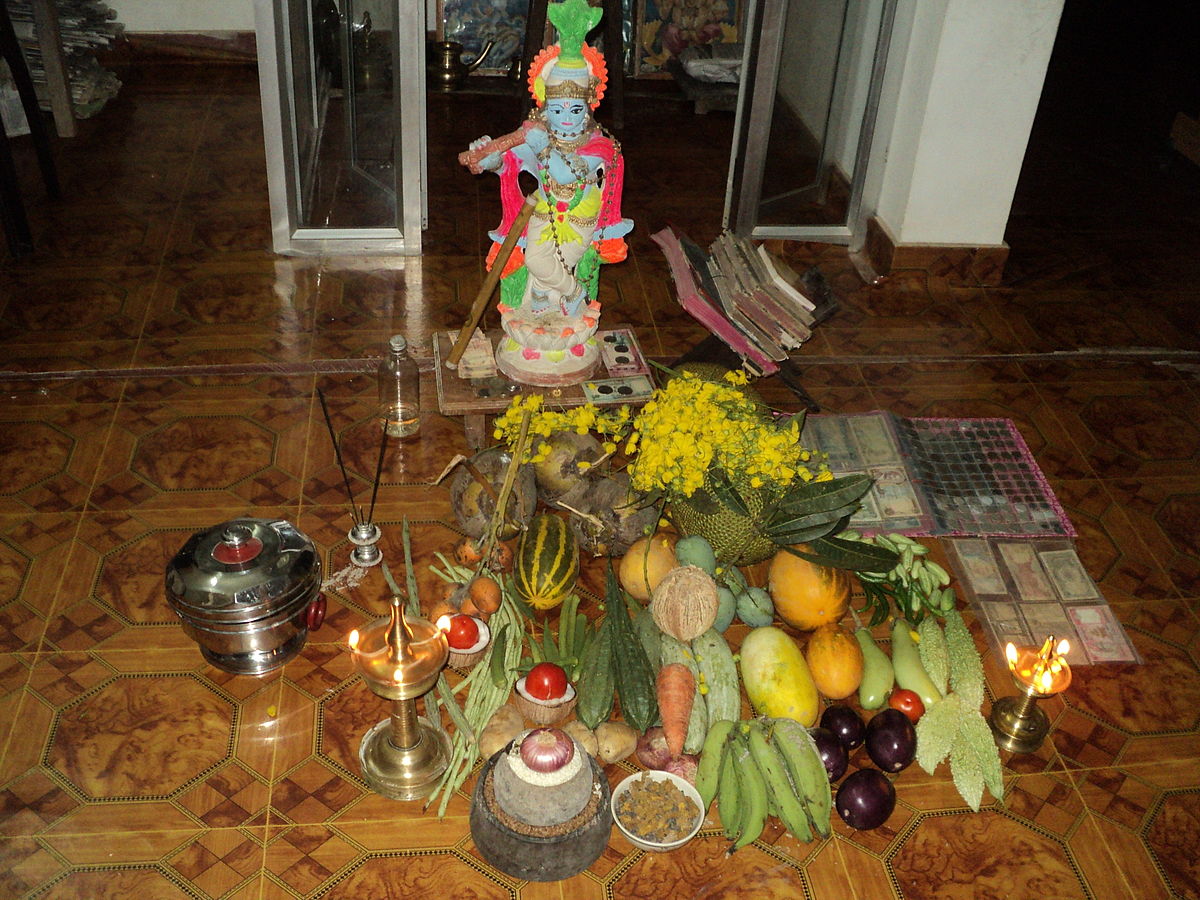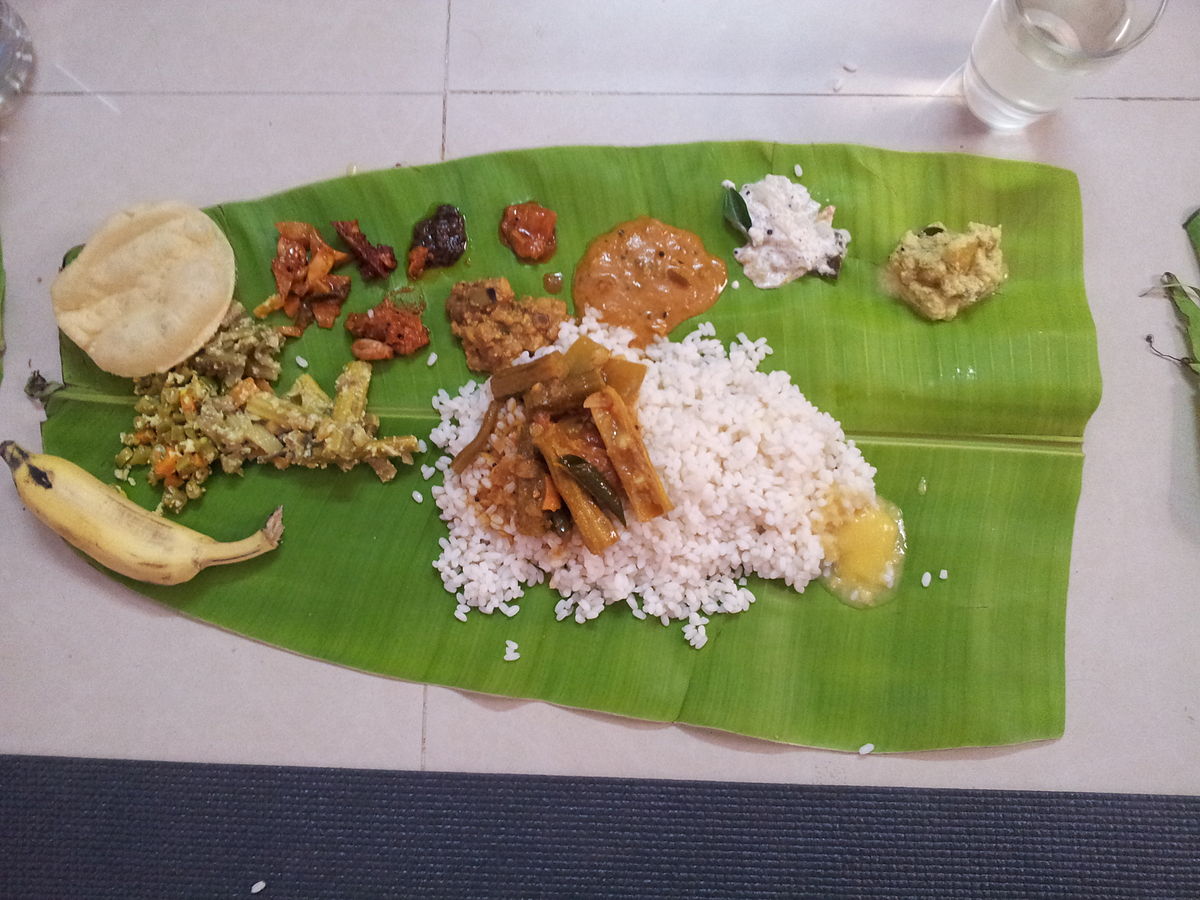Being born to a Malayali father and Maharashtrian mother, my childhood involved celebration of both Malayali and Marathi festivals. Of the Malayali festivals, Vishu was the more prominent one that I remember.
In Kerala, the astrological New Year is said to be the day
the sun enters the Ashwini Nakshatra, or the zodiac sign of Aries, and is
believed to shine right above the Equator.
Vishu is celebrated on the first day of the Malayalam month of Medam. However, if the transit of the sun into aries
occurs after dawn on the first day of the month, Vishu celebrations will be on
the next day. Interestingly, many other Indian communities celebrate their traditional new year around the same time by different names. It is called Puthandu in Tamil Nadu, Bihu in Assam, Baisakhi in Punjab and Poila Boishakh in West Bengal.
Vishu means equal and in the context of the festival,
signifies the completion of the spring equinox. The festival is celebrated with Vishukkani, Vishu kaineetam, Vishu sadya and Vishu padakkam.
Vishu is believed to have been celebrated since 844 AD when
the area was under the reign of Sthanu Ravi.
Lord Vishnu is believed to be the God of Time and since Vishu marks the
first day of the astronomical year, people pray to Lord Vishnu on the day. Shri Krishna, Lord Vishnu's eighth
incarnation, is said to have killed Narakasura on the day of Vishu. Hence, small children are dressed up as Krishna
and Krishna idol is kept in the Vishukkani. This day is considered auspicious by farmers to
begin their agricultural activities.
Vishukkani
This is one of my first memories of Vishu. Custom is for every member of the family to wake
up at dawn on Vishu and visit the Pooja room with eyes closed and Vishukkani being the first thing they see on waking.
"Kani" means "that which is first seen" thus Vishukkani means the first thing seen on Vishu.
Traditionally, all items signifying prosperity are placed in a brass plate
(Uruli) in the Pooja room. These include paddy, coconut, golden cucumber,
jackfruit, lemon, betel leaves, arecanut, a mirror with a metal frame, Konna
flowers (Cassia fistula), holy texts, gold/silver articles, new white clothes
(preferably Mundu), oil lamp (Nilavilakku), coins and currency notes. The belief is to wake up to auspicious items to ensure
the rest of the year brings good luck and prosperity. Reading verses from Ramayana after sighting Vishukkani is said to be auspicious.
Vishu Kaineetam
This was my favourite ritual of Vishu during childhood. Children seek blessings of
elders and Vishu kaineetam (money) is given to children by elders and is an
important ritual during Vishu. The children start saving in a new piggy bank
on the day. This tradition teaches the
younger generation to save for the rainy day.
Vishu Sadhya
"Sadhya" means "feast". On
Vishu, the breakfast is usually Vishu kanji, a porridge made of rice, coconut
milk, and spices. Vishu Sadhya involves
an elaborate meal served on a plantain leaf.
This includes:
Vishu Katta, a dish prepared from freshly harvested rice
powder and coconut milk, served with jaggery.
Thoran, a stir-fry side dish made from vegetables including
snake gourd, bitter gourd, raw mango, jackfruit seeds and spices.
Veppam Poo Rasam, a broth made from neem flowers.
Mambazha Pulissery, a curry with the main ingredient being
raw mango.
It may be noted that the meal includes the basic flavors of
bitter, sweet, salty, sour, and astringent.
This is common to all the communities of peninsular India as part of New
Year celebrations.
Vishu padakkam
"Padakkam" means "fireworks". Vishu padakkam is a tradition of bursting
firecrackers at dawn on Vishu.
Vishukkani Kazhcha
Tradition is to visit Sri Krishna or Guruvayoorappan temple
at dawn to have "Kazhcha or darshan" and seek Lord Vishnu's blessing early
in the morning on the day.
Credits: I am grateful to Manju Stampwala, my colleague, confidant, and friend, a Malayali married to a Gujarati, for her help in composing this article and the picture for Vishukkani.







No comments:
Post a Comment